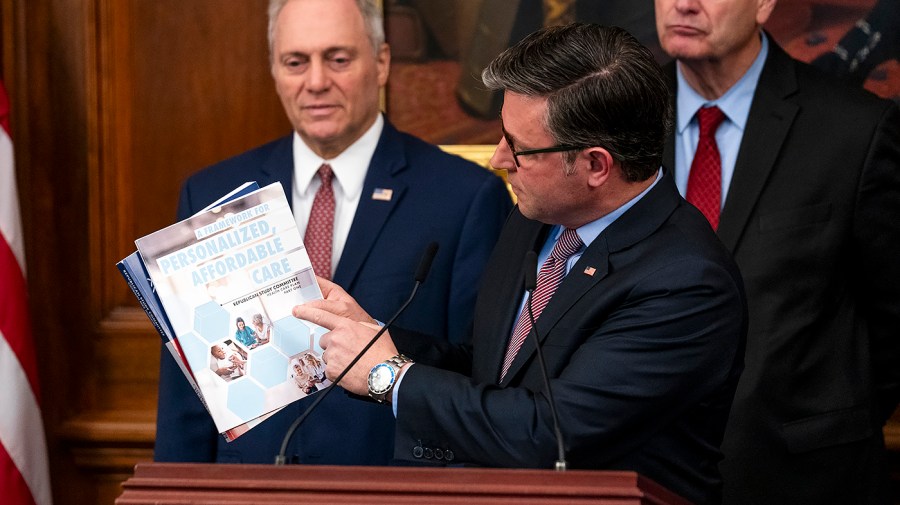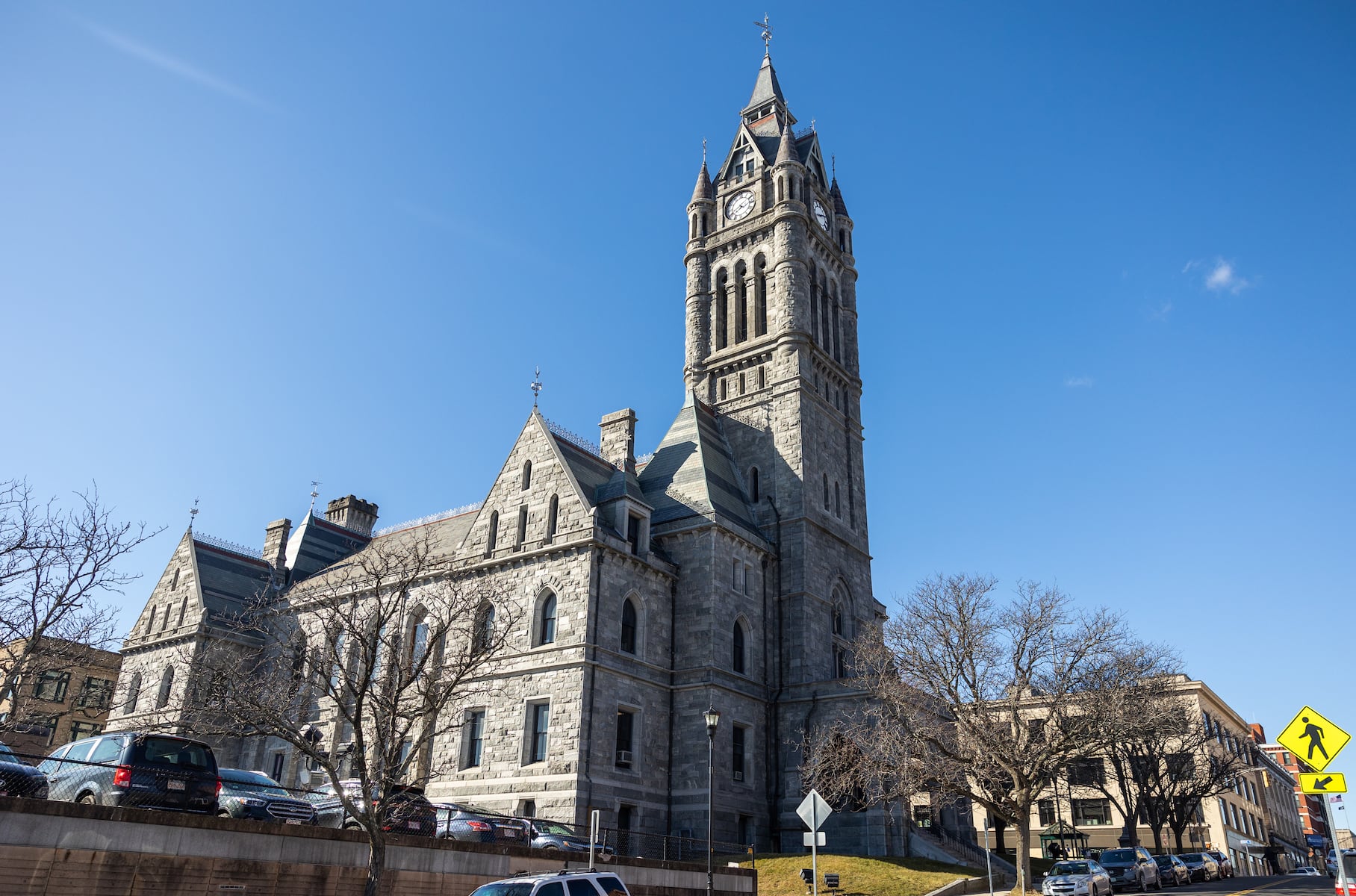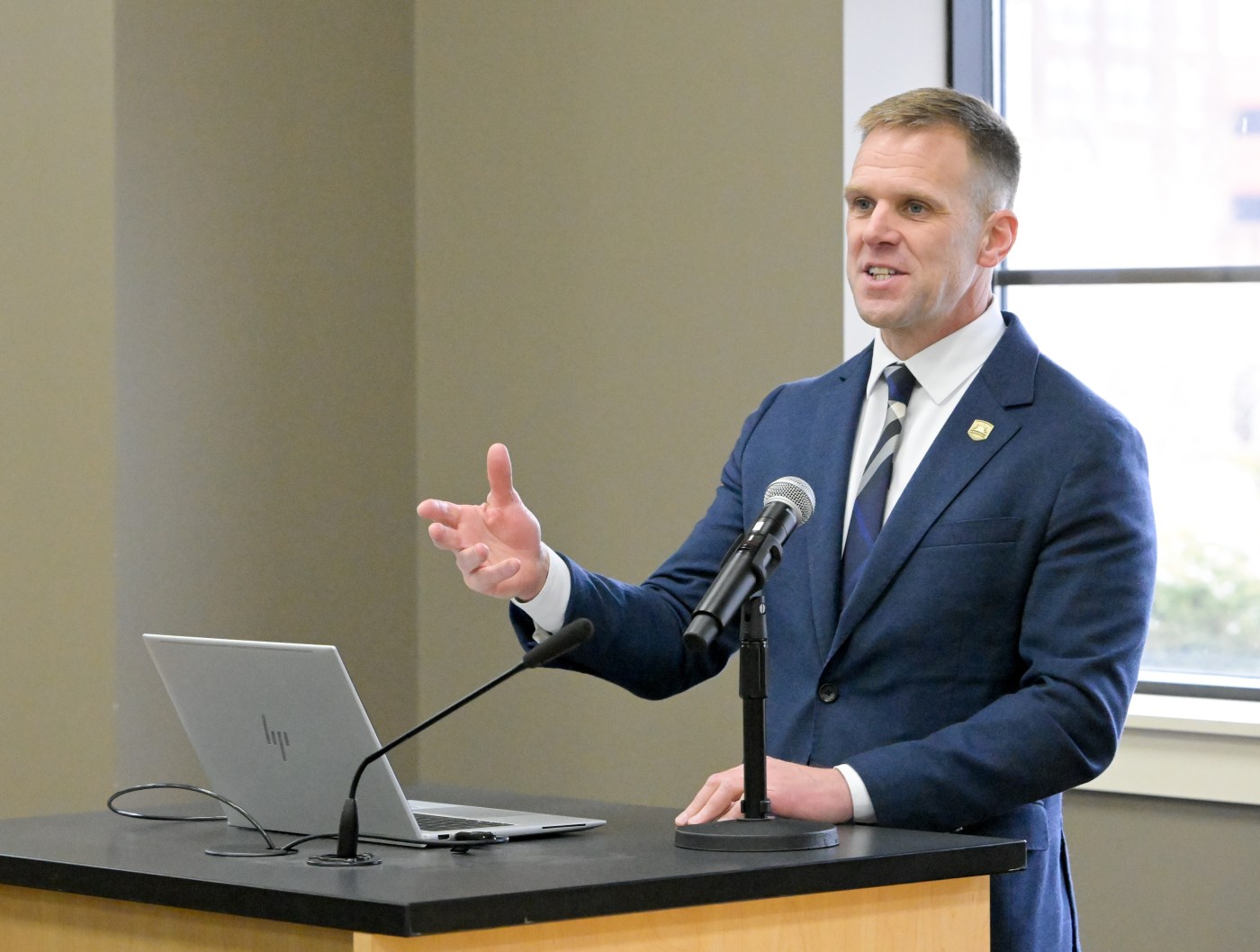Health
Republicans Face Healthcare Challenge as Shutdown Ends

The impending end of the government shutdown presents a significant challenge for Republicans regarding healthcare policy, particularly their stance on ObamaCare. As Congress prepares to resume discussions, the party faces renewed scrutiny over the Affordable Care Act’s impact on the American public and the broader implications for the 2024 elections.
Recent polling indicates that healthcare remains a top concern for voters, with 65% of respondents citing it as a primary issue. Republicans, who have historically criticized the Affordable Care Act, find themselves in a precarious position. They must balance their long-standing opposition to ObamaCare with the need to present viable alternatives that resonate with constituents.
Political Landscape Shifts as Shutdown Nears End
This situation is further complicated by the political dynamics in Congress. The House of Representatives and the Senate are divided, making it difficult for Republicans to unify their messaging on healthcare. Joe Biden and the Democrats are poised to leverage any Republican missteps, emphasizing the potential consequences of dismantling existing healthcare frameworks.
The Congressional Budget Office has projected that repealing key provisions of the Affordable Care Act could result in over 20 million Americans losing their health insurance coverage. This statistic weighs heavily on Republican lawmakers as they seek to craft a response that does not alienate their voter base while also addressing the concerns of those who may benefit from the ACA.
Moreover, the party’s internal factions present another layer of complexity. Some members advocate for a complete overhaul of the healthcare system, while others argue for a more incremental approach. This division could hinder the party’s ability to present a cohesive strategy during upcoming negotiations.
Implications for the Future of Healthcare Policy
As the deadline approaches, the urgency for Republicans to articulate a clear healthcare strategy intensifies. Failure to do so could have repercussions not only for individual lawmakers but also for the party’s overall electoral prospects in the 2024 elections.
The coming weeks will be critical in shaping the narrative surrounding healthcare. Republicans must navigate their opposition to ObamaCare while addressing the needs of constituents who rely on its provisions. The outcome could redefine the party’s approach to healthcare and influence voter sentiment in the lead-up to the elections.
In summary, the conclusion of the government shutdown is not merely a procedural matter for Republicans; it is a pivotal moment that could shape the future of healthcare policy in the United States. With the stakes high and public sentiment at play, how the party responds will be closely watched by both supporters and critics alike.
-

 Top Stories1 month ago
Top Stories1 month agoRachel Campos-Duffy Exits FOX Noticias; Andrea Linares Steps In
-

 Entertainment19 hours ago
Entertainment19 hours agoJayda Cheaves Claims Lil Baby and Ari Fletcher Had an Affair
-

 Top Stories2 weeks ago
Top Stories2 weeks agoPiper Rockelle Shatters Record with $2.3M First Day on OnlyFans
-

 Top Stories2 weeks ago
Top Stories2 weeks agoMeta’s 2026 AI Policy Sparks Outrage Over Privacy Concerns
-

 Sports2 weeks ago
Sports2 weeks agoLeon Goretzka Considers Barcelona Move as Transfer Window Approaches
-

 Top Stories2 weeks ago
Top Stories2 weeks agoUrgent Update: Denver Fire Forces Mass Evacuations, 100+ Firefighters Battling Blaze
-

 Health2 months ago
Health2 months agoTerry Bradshaw Updates Fans on Health After Absence from FOX NFL Sunday
-

 Top Stories2 weeks ago
Top Stories2 weeks agoOnlyFans Creator Lily Phillips Reconnects with Faith in Rebaptism
-

 Sports1 week ago
Sports1 week agoSouth Carolina Faces Arkansas in Key Women’s Basketball Clash
-

 Top Stories1 week ago
Top Stories1 week agoCBS Officially Renames Yellowstone Spin-off to Marshals
-

 Top Stories2 weeks ago
Top Stories2 weeks agoOregon Pilot and Three Niece Die in Arizona Helicopter Crash
-

 Entertainment2 weeks ago
Entertainment2 weeks agoTom Brady Signals Disinterest in Alix Earle Over Privacy Concerns




